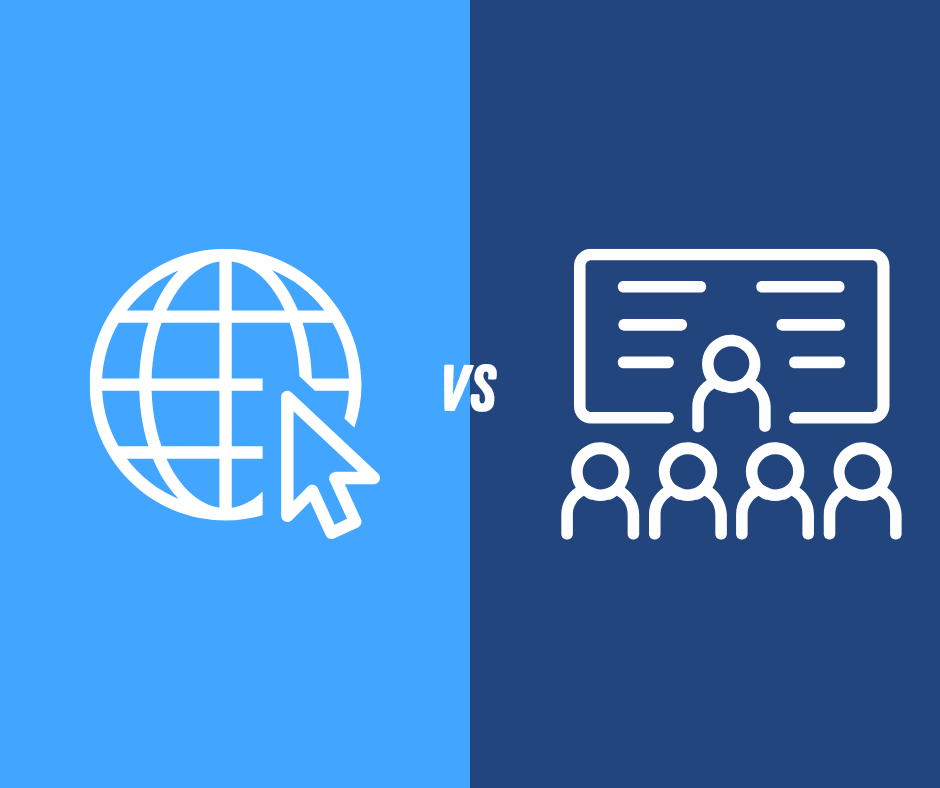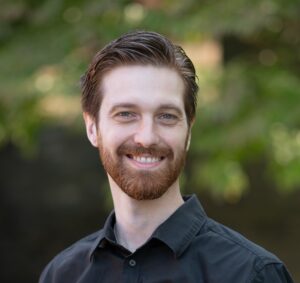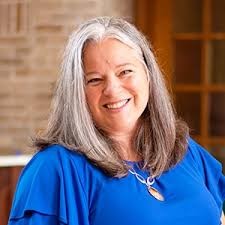
Counseling (MS)
The Master of Science in Counseling program at Cairn University focuses on psychological and spiritual health through the restoration of a person’s relationships with God. It will prepare you with a worldview rooted in Christ and provides the necessary preparation for professional licensure, offering both in-person and online modality options.
Interested? Request more information.
Choose Your Counseling Program Path
The MS in Counseling program at Cairn University offers two convenient learning modalities designed to fit different student needs and preferences. Both the in-person and online programs maintain the same Christ-centered curriculum and aim to equip students for professional counseling licensure while fostering their personal and spiritual growth.
Online
Earn your degree while you work or care for your family from anywhere:
- 100% online
- 7-week asynchronous courses
- Same Christ-centered curriculum as onsite
- Counseling simulation labs with weekly synchronous sessions
In-Person
If you are ready to take the next step in your career, our in-person counseling program might be right for you if you appreciate:
- Strong, faith-based classroom connection
- Real-time practice and feedback
- Access to on-campus resources
MSC Licensure Information
Cairn University’s MSC program is a 60-credit master’s program, which consists of coursework that equips students to begin the process of obtaining licensure in the Commonwealth of Pennsylvania, the State of New Jersey, Delaware and other states. Please refer to the Licensure and Certification Disclosures for details.
If you are a prospective or graduate student who is interested in pursuing licensure and have questions, please contact the Director of Practicum and Internships to discuss program compatibility.
Counseling Practicum & Internship Information
The Practicum and Internship are a required element of the educational experiences necessary for licensure in the Commonwealth of Pennsylvania as a professional counselor, as well as in many other states. Please refer to the following resources for details.
Understanding people and their problems and helping them find solutions and change is no easy task.
Students in the MSC program are equipped for this task by seasoned and experienced faculty who base every aspect of the students’ training on the following core values:
The centrality of Christ in psychological health
Christ is the ultimate source of life and health. People cannot truly experience wholeness – psychologically or spiritually – without knowing Christ intimately and obeying Him unconditionally. As our Creator and Lord, He alone can give us the power and freedom to change, live and love as healthy people.
The authority of the Bible for understanding people
The Bible, God’s written Word, is a sufficient source for understanding people and their nature. In providing counseling and psychological care or discipleship to those who are suffering, it is vital to have guiding principles regarding the complexity of human nature, how problems are maintained, and what promotes change. Our program teaches a biblical anthropology for understanding and engaging with people in their suffering and supporting their healing, growth, maturity, and hope as they navigate the struggles of life.
The need for clinical and academic excellence
Our Christian worldview takes seriously the call in Matthew 22:37 to honor God with our mind and intellect. Our program emphasizes the importance of honoring God through study and research. Preparation to address the heavy emotional and psychological problems of others requires thorough training, including a robust knowledge of the clinical aspects of counseling and mental health, as well as intellectual acumen regarding the wisdom of Scripture in guiding case conceptualization, identifying markers of psychological health, and supporting growth and well-being.
The significance of character development in effective counseling and discipleship
Our graduate counseling programs emphasize preparation not only in intellectual and clinical skill development, but also in the personal formation of each student. Throughout the program and especially in laboratory experiences, character growth is a central focus of training. We seek to foster emotional, relational and spiritual development in every student to prepare them for the profound responsibility of counseling others through life’s most difficult challenges.
Cairn University’s Master of Science in Counseling program is deeply rooted in a Christ-centered curriculum that integrates psychological principles with a biblical worldview. This 60 credit program blends 54 credits of core counseling courses with 6 credits of Bible and theology studies. The core curriculum includes courses such as Counseling Theory, Psychopathology, Marriage and Family Counseling, and Professional Internships, equipping students with practical skills and theoretical knowledge for professional licensure. Specialized labs and courses like Trauma and Grief Counseling and Career Development enhance hands-on learning. Integrated with Theological Foundations of Counseling and Overview of Christian Theology, the program grounds students in a Christ-centered approach to holistic mental health practice.
Learn more:
Admission Requirements
- Application: Submit the Application for Admission along with the $25 non-refundable fee. Apply today using code walkadifferentpath and we will waive the fee.
- Personal Testimony: Describe your conversion to Christ, spiritual growth, and church involvement. (250-500 words)
- Statement of Purpose: This program is a significant time commitment. In 500 words, explain how you have evaluated your readiness to manage competing responsibilities and priorities while pursuing this degree, as well as how obtaining this degree aligns with your long-term goals.
- Transcripts: Submit official academic transcript(s) for all conferred degrees.
The Statement of Purpose and Transcript requests can be submitted via the the student portal once you submit the application.
What is the cost of attendance for the Cairn MSC program?
Cairn University is dedicated to making its Master of Science in Counseling program affordable, with tuition at $725 per credit for the 60-credit professional degree, supported by various scholarships and financial aid options for eligible students.
- Tuition Rate: $725 per credit hour (2025–2026 academic year).
- Program Length: 60 credit hours.
- Estimated Total Tuition: Approximately $43,500, excluding additional costs.
- Financial Aid: Various scholarships and grants are available to eligible graduate students. For more information, click here.
Can I become a licensed counselor if I graduate from your program?
Yes, our Master of Science in Counseling (MSC) program is designed to meet the educational requirements for licensure in Pennsylvania, New Jersey, and Delaware.
Because each state establishes its own criteria for professional licensure, including counseling and psychology, requirements may vary. We strongly encourage you to consult the licensing board in the state where you intend to practice to ensure they understand the specific educational and clinical requirements for licensure. Refer to this page for more information.
What is the difference between the MA and the MS in Counseling Degrees?
In summary, only the Master of Science in Counseling (MSC) program meets the educational requirements for licensure.
The Master of Arts in Community Counseling and the Master of Arts in Counseling Ministry are shorter programs that do not fulfill licensure requirements. These MA degrees can typically be completed in two years of full-time study, whereas the MSC is a 60-credit program usually completed in three years of full-time enrollment.
All three programs share a common core curriculum during the first two years, which includes the following foundational courses:
CSG 601: Counseling Theory and Helping Relationships
CSG 602: Helping Relationships Laboratory
CSG 611: Psychopathology, Assessment, Diagnosis, and Treatment in Counseling
CSG 612: Individual Assessment Laboratory
CSG 701: Marriage and Family Counseling
CSG 702: Marriage and Family Counseling Laboratory
CSG 711: Group Counseling: Dynamics, Theory, and Practice
CSG 712: Small Groups Laboratory
What can I do with the MA in Community Counseling degree?
Many agencies and institutions hire individuals for mental health roles that require a graduate degree in counseling, psychology, social work, or a related field—but do not require licensure.
These positions are often found in settings such as inpatient psychiatric facilities, outpatient clinics, and residential treatment programs. In such roles, unlicensed professionals typically work under the supervision of a licensed clinician, contributing to the implementation of treatment plans. Responsibilities may include facilitating psychoeducational groups, conducting individual coaching or counseling sessions, supervising program activities, and participating in interdisciplinary treatment team meetings.
Additionally, many individuals pursue the Master of Arts in Counseling to enhance their ministry work. Those serving in pastoral roles often seek advanced training in counseling to strengthen their ability to provide discipleship and spiritual guidance within their congregations. The MA in Counseling is an excellent option for those looking to integrate counseling skills into church-based ministry.
What can I do with an MS in Counseling degree?
The Master of Science in Counseling (MSC) offers broader career and ministry opportunities compared to the MA degrees.
The MSC includes an additional year of coursework, along with a practicum and internship, which fulfills the educational requirements for professional licensure in Pennsylvania. This advanced training opens doors to a wide range of roles in both clinical and ministry settings.
Licensed professional counselors (LPCs) can work in private practice, providing outpatient therapy, or in inpatient psychiatric and substance use treatment facilities. Correctional institutions—including state prisons and county jails—also employ both licensed and unlicensed master’s-level clinicians to deliver mental health services to incarcerated individuals. Additionally, LPCs are often employed in partial hospitalization programs, residential treatment centers, and are frequently tasked with supervising non-licensed staff. Schools are increasingly integrating licensed professional counselors and certified school counselors into their support teams to address student mental health needs.
While licensed professional counselors are qualified to provide marriage and family counseling, those seeking to become Licensed Marriage and Family Therapists (LMFTs) in Pennsylvania must complete a program with a dedicated marriage and family therapy track or pursue a post-graduate certification in that specialization to meet licensure requirements.
What are the distinctives of Cairn’s program?
One of the key distinctives of our counseling programs is the use of theological principles to conceptualize clinical mental health issues. Students are equipped to conceptualize mental health issues through a Christian theological lens, drawing on biblical principles to inform their understanding of human behavior, suffering, and healing. At the same time, they receive robust training in the clinical language, frameworks, and evidence-based practices necessary to function effectively across a wide range of treatment settings.
A hallmark of the program is its four semesters of counseling laboratory training. These labs provide in-depth, hands-on experience in developing core counseling skills within a highly supportive and realistic environment. Through simulated counseling sessions that closely mirror real-life scenarios, students gain the confidence and competence needed to transition seamlessly into professional or ministerial roles upon graduation. This dual emphasis on theological insight and clinical excellence prepares graduates to serve with both compassion and credibility in diverse contexts.
- Counseling (MA)
- Community Counseling (MA)
Blog Articles

The Value of a Biblical Counseling Master’s Degree
A counseling degree, perhaps more than other graduate programs, challenges individuals with the amount of both technical work and vulnerability. Tasked with taking on stressful situations, completing homework, and keeping

Online vs In Person Master’s in Counseling: Which is for You?
So, you’re ready to pursue a master’s in counseling. That’s great! This is a significant step in your journey to professionally investing in the lives of others. One of the

MA vs. MS in Counseling: Which Degree is Right for You?
If you are considering a graduate degree in counseling, you’ve likely encountered two tracks: a Master of Arts (MA) or a Master of Science (MS). While these degrees may seem





